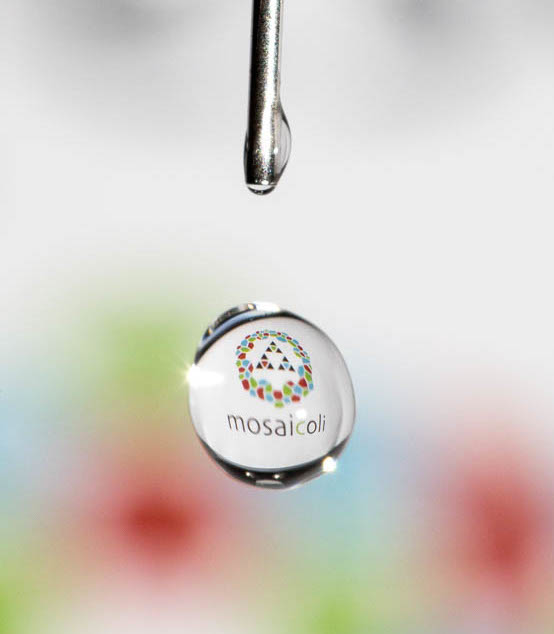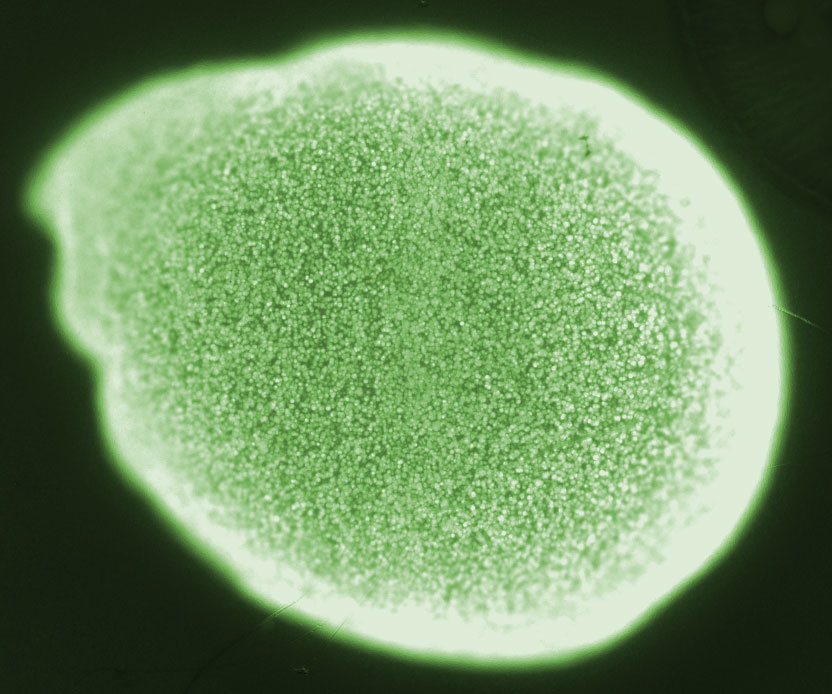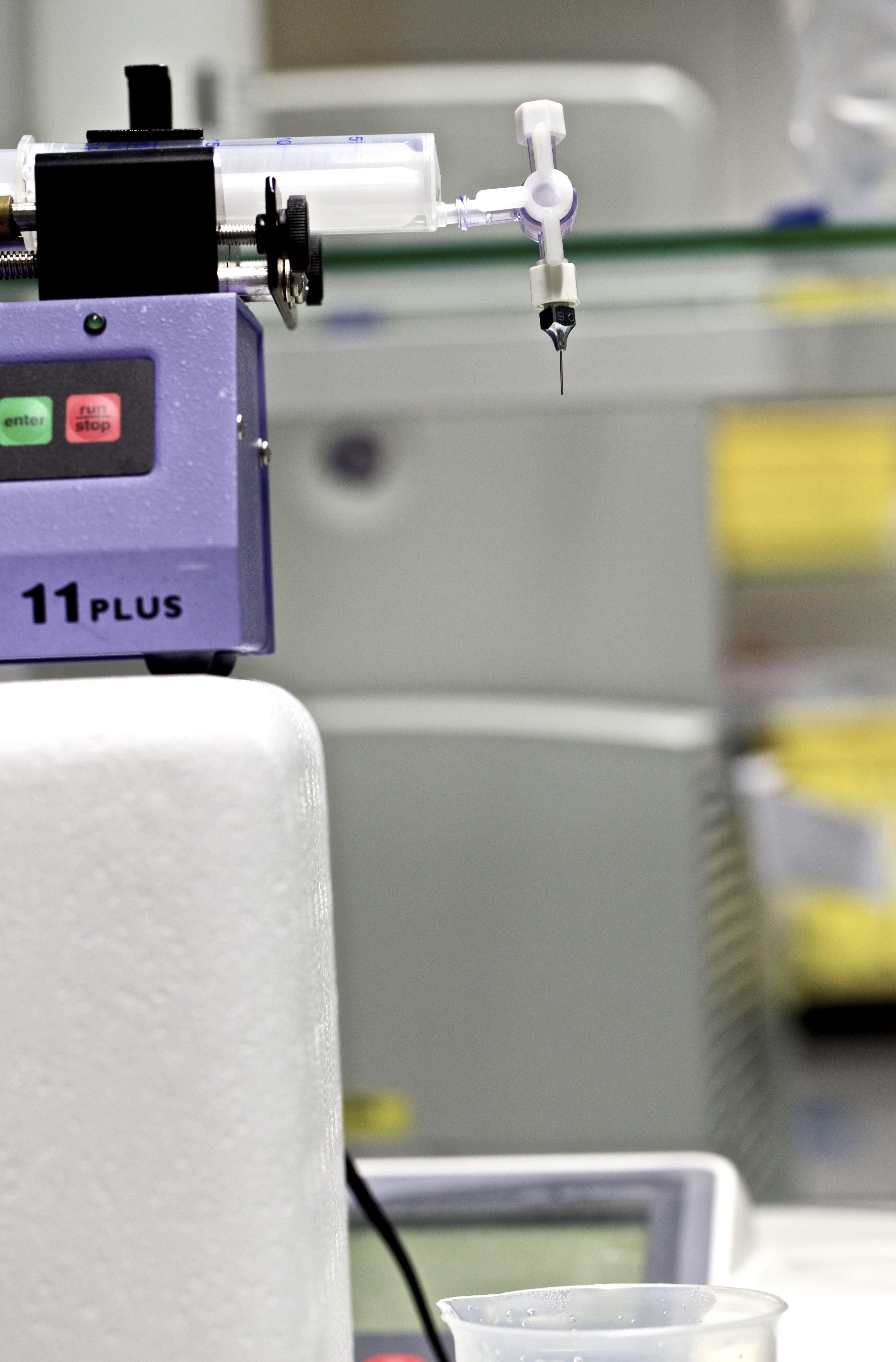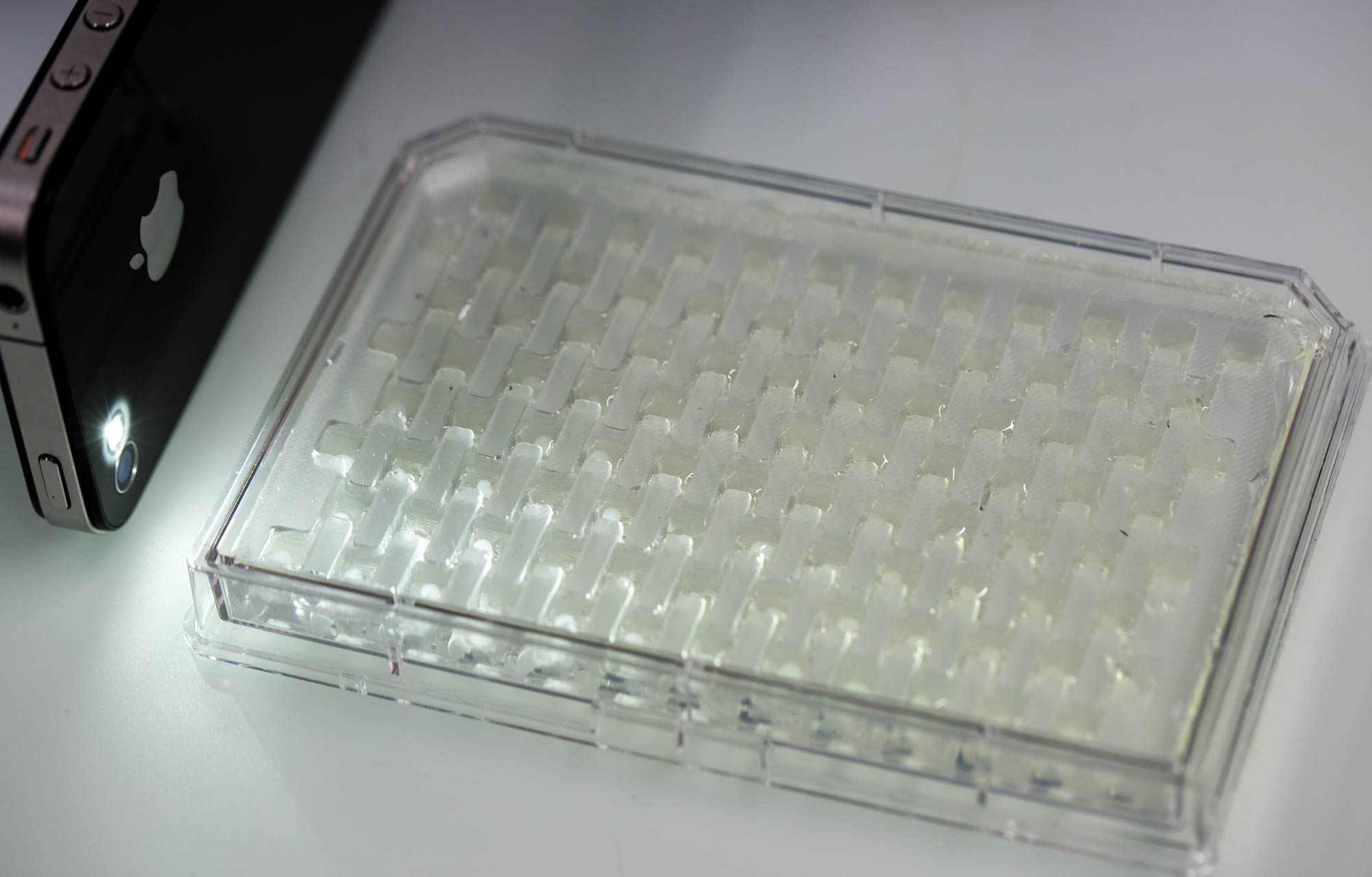Team:ETH Zurich/lab/bead
From 2014.igem.org
(→Loading the Chip) |
(→Production) |
||
| Line 28: | Line 28: | ||
===Production=== | ===Production=== | ||
{| | {| | ||
| - | [[File:ETH2014_BeadsProduction.jpg|left|250px|thumb| '''Figure 3 | + | [[File:ETH2014_BeadsProduction.jpg|left|250px|thumb| '''Figure 3 Bead production.''' Alginate droplets are gelling in the CaCl<sub>2</sub> solution in the beaker placed under the needle device]] |
Bacteria are resuspended and diluted in NaCl-solution (0.9 % in H<sub>2</sub>O) so as to achieve the desired cell density. Here, we aimed at a comparably high concentration of 10<sup>7</sup> bacteria per bead (3 mm diameter). The resuspension was added to alginate (2.5%) to reach a alginate concentration of 2%. The viscous solution is filled into a syringe containing an appropriate needle device and extruded at a constant, slow velocity. Ideally, the droplets should fall form a height of approximately 30 cm into a 100 mM CaCl<sub>2</sub> solution. In the CaCl<sub>2</sub> solution gelling of the alginate droplets will occur instantaneously. To avoid excessive salt stress for the bacteria the beads should be transferred to a 10 mM CaCl<sub>2</sub> solution. | Bacteria are resuspended and diluted in NaCl-solution (0.9 % in H<sub>2</sub>O) so as to achieve the desired cell density. Here, we aimed at a comparably high concentration of 10<sup>7</sup> bacteria per bead (3 mm diameter). The resuspension was added to alginate (2.5%) to reach a alginate concentration of 2%. The viscous solution is filled into a syringe containing an appropriate needle device and extruded at a constant, slow velocity. Ideally, the droplets should fall form a height of approximately 30 cm into a 100 mM CaCl<sub>2</sub> solution. In the CaCl<sub>2</sub> solution gelling of the alginate droplets will occur instantaneously. To avoid excessive salt stress for the bacteria the beads should be transferred to a 10 mM CaCl<sub>2</sub> solution. | ||
<br> | <br> | ||
Revision as of 23:27, 17 October 2014
Beads
Overview
Properties
Production
Loading the Chip
 "
"

















